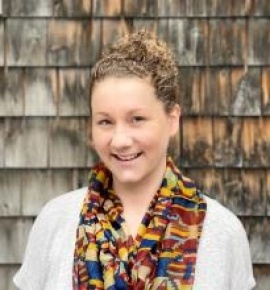Neurobiologist collaborates in research to develop new treatment technology for Alzheimer's disease
Jennifer Rauch, assistant professor of biochemistry and molecular biology, is collaborating on a two-year, $700,000 National Institutes of Health grant to develop a new technology to treat Alzheimer’s disease, chronic traumatic encephalopathy and other neurodegenerative diseases.

Rauch will be working with grant recipient Novoron Bioscience, a San Diego-based biotechnology company that seeks to develop therapies to reverse central nervous system damage, and Kenneth Kosik of the University of California, Santa Barbara, in whose neurobiology lab Rauch conducted research as a post-doc.
Based at the Institute for Applied Life Sciences, whose mission is to translate science into technologies and services that benefit human health and well-being, the Rauch Lab focuses on the neurodegenerative protein tau, which aggregates in neurofibrillary tangles that are correlated with cognitive decline. With the NIH funding, Novoron will test new technology aimed at reducing the spread of tau by targeting LRP1, a cellular receptor for tau.
Rauch was the first author of a paper published in Nature that described the discovery of the central role of LRP1 in tauopathy. By targeting the molecule that regulates the transport and spread of tau within the brain, Novoron hopes to develop a novel, effective approach to treat Alzheimer’s disease, which affects some 25 million people worldwide, and other tauopathies.
“What makes this collaboration with Novoron interesting is our ability to combine their years of experience targeting LRP1 with our unique tauopathy model that allows us to test potential therapeutics in the matter of weeks as opposed to the months or years that other models require,” Rauch says. “The potential synergy is exciting, and I look forward to Novoron’s collaboration to build on our previous work.”
Kosik adds, “The discovery of LRP1 as an essential factor underlying tau spread in the brain has far-reaching potential impacts for human disease, which is very exciting for us. Collaborating with Novoron gives us the rare opportunity to take our discovery and immediately begin trying to translate that work into novel treatments of disease. That doesn’t happen often in science, and we are enthusiastically looking forward to what will come of our work together.”
Travis Stiles, CEO and co-founder of Novoron, which has been working to develop LRP1 drugs for several years, says the collaboration with Rauch and Kosik is “an amazing opportunity to expand the impact of our platform.”